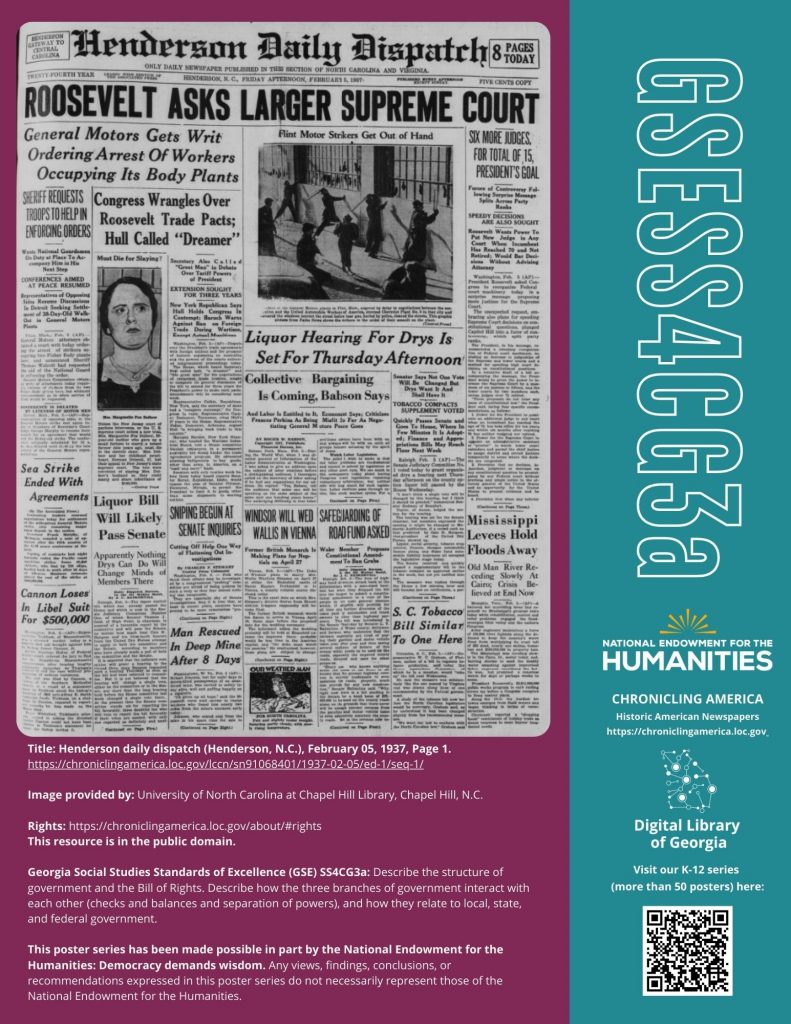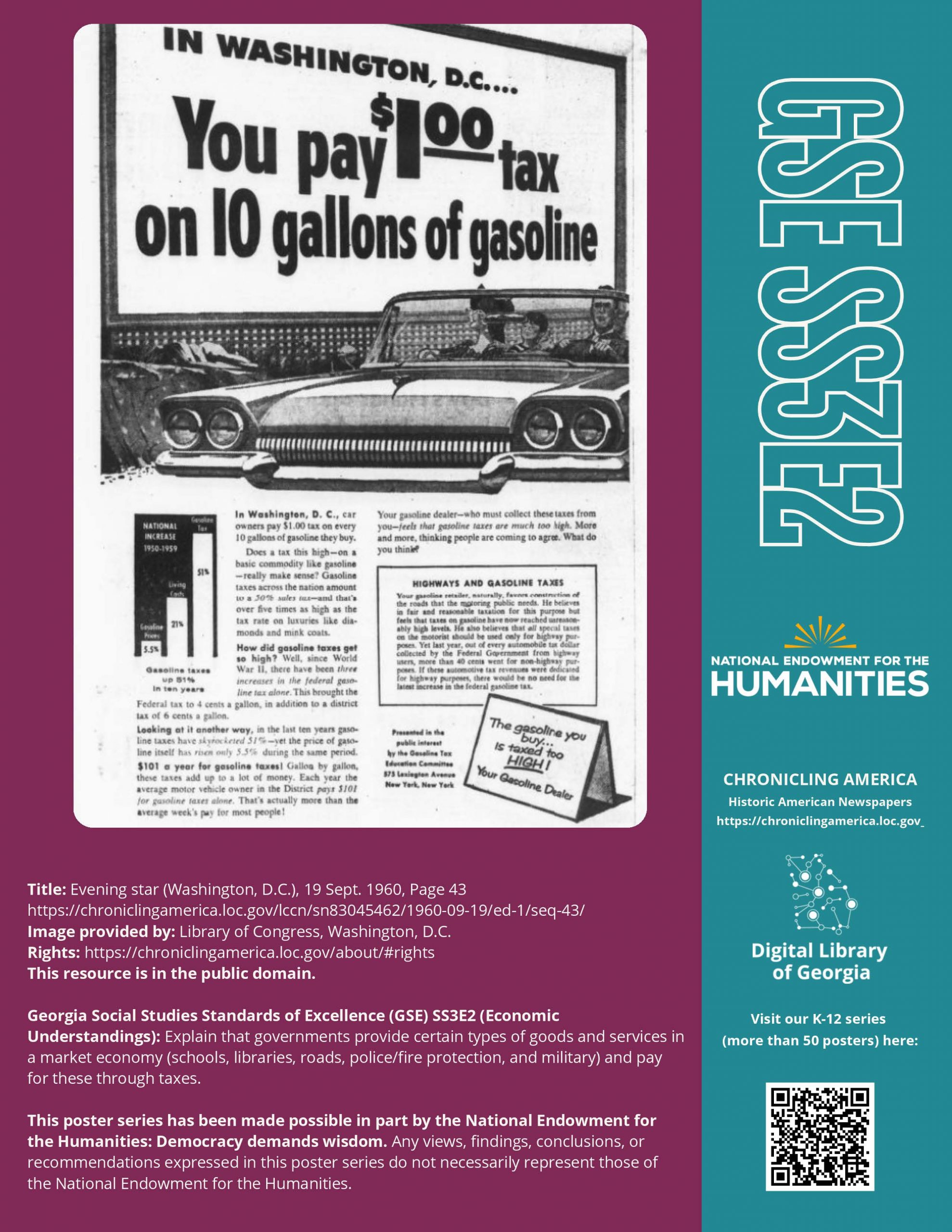
Get the latest printable poster in a series designed for the Georgia K-12 community by the Digital Library of Georgia, based upon the Georgia Social Studies Standards of Excellence.
These resources provide high-quality, standards-aligned materials that help teachers meet their students’ varying academic interests and needs.
The latest poster is for the Georgia 4th Grade Social Studies Standard of Excellence (GSE) SS4CG3a: Describe the structure of government and the Bill of Rights. Describe how the three branches of government interact with each other (checks and balances and separation of powers), and how they relate to local, state, and federal government.
Newspaper title: Henderson daily dispatch (Henderson, N.C.), February 05, 1937, Page 1 (links to newspaper page)
Image provided by: Library of Congress (Washington, D.C.)
Rights: https://chroniclingamerica.loc.gov/about/ (links to Chronicling America’s “About” page.)
This resource is in the public domain.
You can download the poster here (link to poster here)
The poster has been designed to fit an 8.5” x 11” letter-sized sheet of paper, and all content is in the public domain to ensure print accessibility for all students and educators.
Heads up, Georgia K-12 social studies teachers!
Visit us at https://bit.ly/DLGEducatorResources (link out to our Educator Resources page), where you can find:
- Our entire K-12 poster series
- Georgia Standards of Education-aligned Social Studies teaching modules for 2nd, 3rd, 4th, 5th, and 8th graders
- Resources for teachers and students participating in National History Day (link to NHD page) and National History Day Georgia (link out to NHDGA page).


